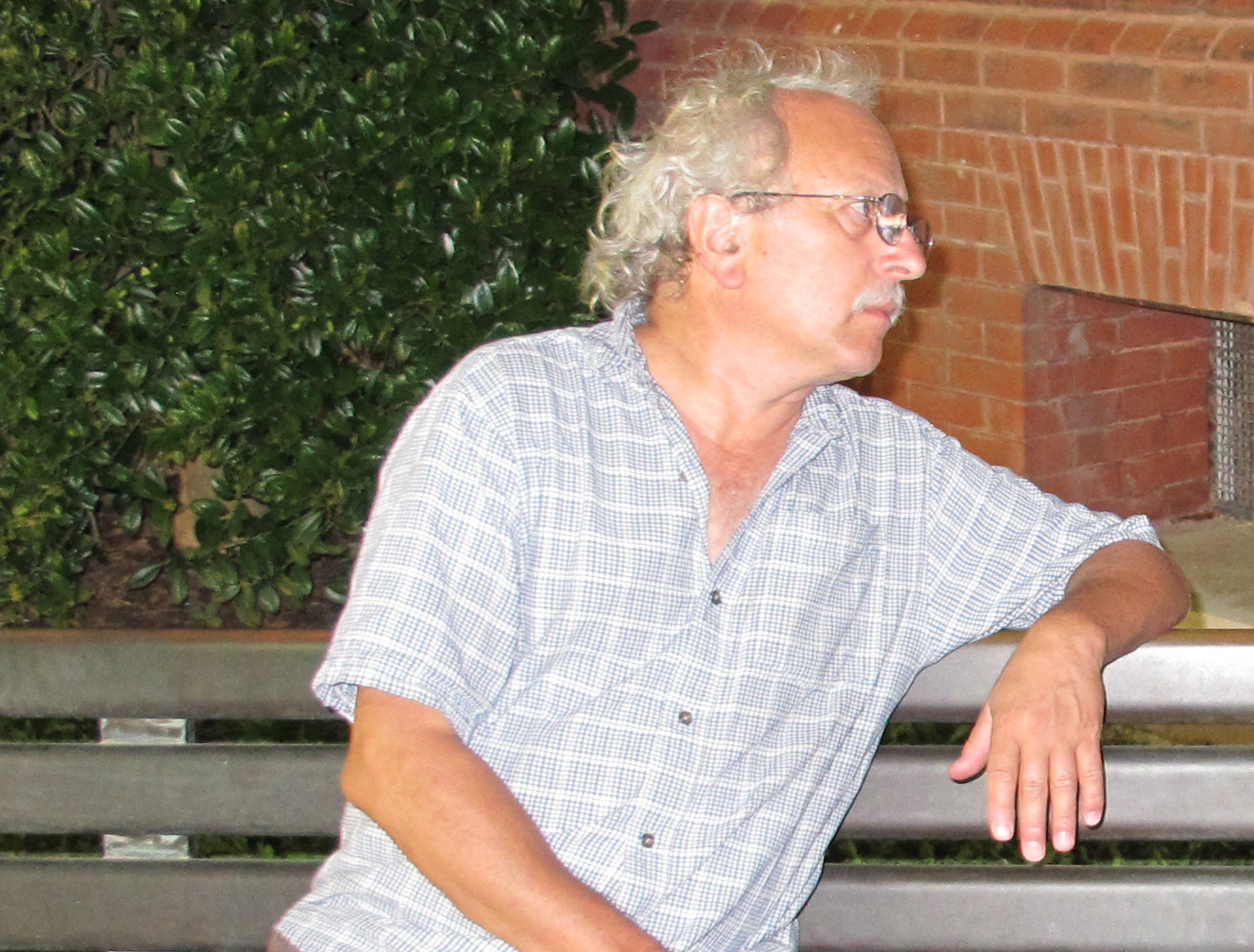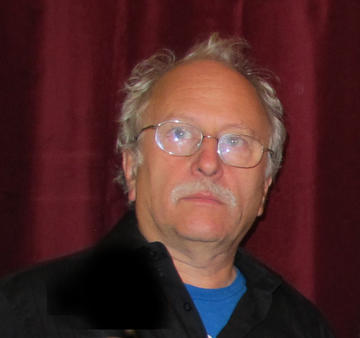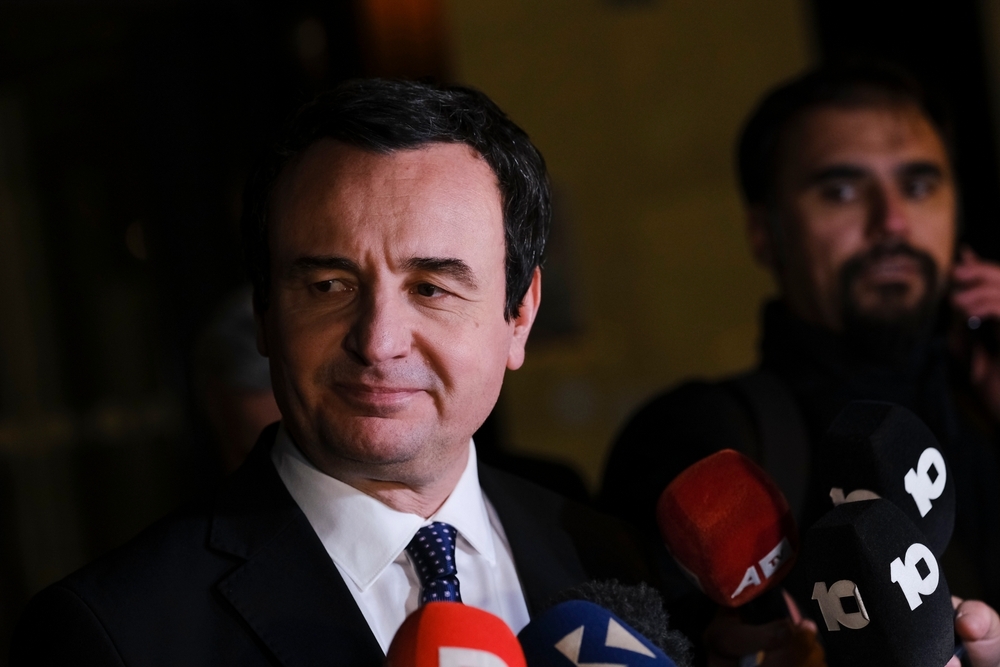Peter Lippman: grassroots activism to network and resist
American journalist and activist Peter Lippman has a profound knowledge of Bosnia and Herzegovina. He has been following the political and post-war situation in the country for years now. Recently, he has taken a particular interest in the environmental movements that are sweeping the whole region

Peter-Lippman-attivismo-dal-basso-per-fare-rete-e-resistere-1
Peter Lippman (provate archive)
In his book Surviving the Peace: The Struggle for Postwar Recovery in Bosnia-Herzegovina (Vanderbilt University Press, 2019), American journalist, author and peace activist Peter Lippman documents the endless challenges of refugees returning to the sites of civilian massacres during the war in Bosnia and Herzegovina. Lippman writes from a personal perspective, using precise and accurate journalistic language, revealing the causes, protagonists and broader dynamics of the injustices that marked the Bosnian tragedy.
Having never left these territories for long periods of time, Lippman returns in 2024 with a new project: a series of texts on environmental activists and threats to the environment in Bosnia and Herzegovina. The author focuses on the new struggles of the citizens of BiH fighting for a dignified life in their country and on the resistance to the dynamics of the global economy in a world engulfed in resource conflicts. The reportage was published by LeftEast and is still an ongoing story.
For Lippman, the pacifist commitment was a spontaneous and unconditional choice. From a young age, he observed with amazement a world shaken by anti-colonial movements. However, it was the Vietnam War that shaped him. With his three brothers, he spent his adolescence on the streets of Seattle, protesting against the policies of US Presidents Johnson and Nixon. Since then, he has always been interested in war zones, trying to recount them from an intimate perspective, aware of the harm that conflicts bring to humanity.
His talent for writing materialises by intertwining spontaneously with his pacifist commitment, which ranges from participating in the mobilisations of the 1960s in the United States to witnessing the bloody turmoil in the Middle East in the early 1990s and supporting the opponents of dictatorships in Latin America.
Lippman’s Balkan story began in the 1980s, and the Bosnian one a decade later, when he met a refugee family fleeing the hell of war and finding refuge in Seattle. This experience inspired Lippman to engage in peace activities and initiatives, helping refugees settle in their new homeland and fervently advocating for more decisive intervention of the United States against the war in Bosnia and Herzegovina. He has visited BiH more than twenty times, collecting stories about peacebuilding and civil society in a post-conflict context.
We met with Peter Lippman to discuss a David-versus-Goliath struggle – the challenges facing civic movements in BiH against multinationals, extractivism and corruption – but also the hope that this world will become a better place for future generations.
It would be interesting to begin by tracing connection between music and pacifism. What is the common thread that links your passion for folklore and music – developed from an early age – and your pacifist commitment?
For me, these are two interconnected worlds. My family has always cultivated an interest in folklore, and I was fascinated by ethnographic research. At a very young age, thanks to folk dances, I realised that there were aslo other wonderful languages and music, especially those of Eastern Europe, my grandparents’ homeland. I promised myself I would study languages. At the age of ten, I learned the Cyrillic alphabet just because I thought it was cool.
The values cultivated in my family (my mother was a social worker and my father fought for the rights of people with disabilities) have influenced our political beliefs. When I was fifteen, I protested against the Vietnam War with my brothers. But it was folklore that got me off the streets.
Later, as a member of a folk dance group, I visited Yugoslavia, Bulgaria and Romania. In 1981, I stopped in Novi Sad, staying for a year to study the language and the tamburica [a small, long-necked lute]. Thanks to this initial connection with Yugoslavia, I became emotionally involved in the events that marked those territories, following the developments from the 1980s onwards. My political vocation soon prevailed over the ethnographic one, although I continue to play Balkan, Turkish and klezmer music.
While studying in America, during the war in Bosnia and Herzegovina, you met a Bosnian refugee family, and that was how you began your humanitarian work alongside those who found a new home in the United States. Was it this experience that inspired you to explore Bosnia and Herzegovina?
These people were going through terribly traumatic experiences, and I realised that sometimes listening was the best thing to do. This episode rekindled my interest in Bosnia. I wanted to return. I finished my studies, and as soon as the war was over, I arrived in Tuzla, starting to work for a small humanitarian organization “Djeca u krizi” [children at risk].
At that time, people from Srebrenica were arriving in Tuzla. For me, being close to those strong women, mostly widows from Srebrenica, was a very intense experience, as I write in my book. In Sarajevo, I later worked as a translator for the Onasa news agency.
I returned to the United States in the spring of 1999, but remained connected to Bosnia and Herzegovina, partly through an advocacy project launched in Washington. During that period, I became involved in several grassroots activism initiatives, realising that the post-war period in Bosnia and Herzegovina would be marked by the return of refugees. People were courageously returning to the destroyed villages around Zvornik, Prijedor and Kozarac. During the great battle in Seattle against the WTO, instead of being in my hometown, I was with the displaced in the camps around Goražde.
Would you say it was a traumatic experience for you? How did you react to the events of that period?
Those were turbulent times, but not like in Kosovo. 1999 was supposed to be the year of return, but then several events followed, including the decisions regarding Brčko, and the then president of Republika Srpska Nikola Poplašen was removed from office. The NATO intervention in Serbia further destabilised the situation.
Can you tell us what happened in Kosovo?
During the 1997 student protests, a friend of mine, a peace activist from San Francisco, who knew Albin Kurti, then a young rebel and now the prime minister of Kosovo, invited me to join a group of journalists and activists to follow and document those turbulent events. The Kosovo Liberation Army (KLA) uprising against the Serbian regime, which had abolished the Albanian language in Kosovo’s schools, had just erupted. After the murder of Adem Jashari’s family [the then leader of the KLA], the situation escalated.
Of the eleven people who applied, only six of us – five men and one woman – went to Kosovo. We stayed there for a few weeks and spoke with both sides. I wanted to return to Sarajevo on 30 March and make a phone call to my mother. However, they transferred me to Mitrovica, where I was sentenced to ten days in the Pristina district prison. I managed to avoid the sentence thanks to outside intervention, so three days after the sentence, they took me to the Macedonian border in a police car. It turned out to be a positive experience for me, a risk that led to interesting reflections.
Let us return to Bosnia and Herzegovina. After the war, you followed the civic movements that were active throughout the country. What distinguished these movements?
The postwar period was marked by several refugee return campaigns. These deeply felt initiatives were spearheaded by educated individuals, often lawyers, from Tuzla, Goražde, Doboj and other cities, who helped refugees return to their homes. There was also a nationwide return coalition, with branches in many cities in both entities.
I saw very active and strong women, who blocked roads and challenged representatives of the international community. They knew how to use the media and engage international public opinion. They also knew how to exploit these means to ensure their demands were not ignored. At that time, there were also active movements to preserve the memory of the horrors that occurred in Prijedor, Srebrenica and other places.
I was reflecting on the moment when this “post-war” period became something else. For a long time, this was not possible, because the Dayton system posed obstacles to coexistence, dividing the population. This dynamic benefited military leaders and their political representatives. However, the war was still present in people’s minds. People became victims of psychological manipulation by leaders who wanted to divide the population, despite collaborating very well with each other.
How did the civic movements in post-war Bosnia and Herzegovina fade away? How do you see the current movements in BiH opposing certain projects in the Western Balkans that are influenced by new global political and economic dynamics? You also addressed these issues in a recent, still unfinished reportage…
If we are talking about Dayton-based manipulations, the post-war period in Bosnia and Herzegovina is not over yet. However, in the immediate aftermath of the war, I met people willing to commit to building a more normal society, capable of escaping artificially created ethno-national divisions. Among these people were the leaders of the refugee return movement.
For me, however, the post-war period in BiH ended when I learned about the local movements against multinational mining companies and began talking to activists on this front. I realised that these activists, in addition to networking within their communities – which have unfortunately become monoethnic – also collaborate across ethnic lines.
I went to the Pecka Visitor Center, near Mrkonjić Grad, to attend a meeting of activists, or rather biologists, from across the country. Today, activism and biological research overlap and complement each other in many ways. Those present – about twenty young people from various ethnic groups – did not care about these differences; they found even mentioning them ridiculous. They were happy to be able to work together: the young, free from all the burdens of war, pursuing other values and goals, and the older ones, who still remembered the normality of their shared daily lives before the war.
My impression was that everyone wanted to distance themselves from the post-war period and from the tendency to focus on trauma and victimisation, so they could defend their country. My editor criticised me for describing these dynamics – which I believe reveal genuine patriotism – with too much sentimentality. As a foreigner, perhaps I romanticised the situation too much. One must be careful about one’s assessments.
Here the question arises: can we still speak of civic movements in BiH today? Unlike the refugee return movement, which involved tens of thousands of people, the current mobilization involves only a few dozen individuals, and only in specific situations do protests manage to involve hundreds of people. For example, in the Ozren area, the entire local community opposes the Lykos mining company, as is also the case in Majevica, where residents are protesting against the Arcore company. There are some local activism initiatives that can be considered movements.
Obstacles to broader national mobilization are emigration, compromises and the co-optation of individuals. The situation is certainly not rosy, but I sense the beginning of a new chapter in the history of civic movements in Bosnia and Herzegovina.
By promoting “green transition”, the EU talks about protecting human rights and the environment. At the same time, however, we are witnessing situations where some EU countries are supporting certain mining projects in the Balkans, which have already caused serious damage to the environment. While the population opposes irresponsible extractivism, the authorities in Bosnia and Herzegovina seem to favor this new form of colonialism. Do you think that movements opposing extractivism and multinationals can spark a turning point?
Yes, I think it is a realistic scenario. However, I cannot predict the future. In my opinion, the question we need to ask ourselves is: is there hope?
If citizens continue to mobilise, then there is still hope. I see hope in the pressure being exerted on local political leaders, who should be afraid of losing their jobs. After all, Bosnia and Herzegovina is not North Korea or Belarus. There are more or less democratic elections and events like the one involving the mayor of Lopare, who, under pressure from activists, has reconsidered his policy and backtracked. We will see if the mayor’s move proves to be a genuine turning point; the population is still sceptical.
Meanwhile, some movements have grown significantly, such as the one in defense of Mount Ozren. In Tuzla, the so-called “Cardboard Revolution” is also very influential, as is the mobilisation in Jezero, at the source of the Pliva River, where the population is opposing a mayor who is doing a terrible job. Similar demonstrations are taking place in several municipalities throughout Bosnia and Herzegovina.
It is true that the population sometimes manages to influence mayors’ decisions. It is equally true, however, that authorities at higher levels of government openly support the activities of mining companies. Recently, the Prime Minister of the Federation of Bosnia and Herzegovina (FBiH) called the forested areas of Vareš “a barren forest”, which presumably jeopardises a tempting investment. The leadership of Republika Srpska is ready to sell off the mineral resources of this part of BiH without any strategy or public consultation. The situation s even worse in Serbia, where for years the population has opposed Rio Tinto and the Jadar project, recently declared of strategic interest by the EU. Does the local population still have reason to hope?
I believe there is always hope. In BiH, there are some well-established civic movements. The so-called “Cardboard Revolution” is influential and very dynamic throughout the Tuzla, Brčko and Semberija regions, all the way to central Bosnia, and is a good example of cooperation across the border between the two entities, an example that inspires hope. I am also aware of the case of Rio Tinto and Jadar, as well as the compromises made by the Prime Minister of the BiH Federation and other political leaders who would sell off any piece of land. Many ordinary people, rightly, no longer trust the political leadership, because over time they have realised that politicians are often willing to sell out and destroy their own country.
In any case, the struggle continues. Vareš is probably one of the heaviest defeats, but the mobilisation continues; in fact, it is gaining ever greater support.
It is not about the amount of lithium [potentially present in these territories], which is lower than that found in many other countries in Europe and around the world. The problem is the mining companies that, like vultures, go where resistance is weakest. The same goes for EU leaders who, faced with strong internal resistance, are now talking about a green transition outside the Union.
Most of the countries born from the ashes of Yugoslavia – a strong and influential state, a leader of the Non-Aligned Movement in a world shaken by the Cold War – have still not recovered from the destruction of the 1990s. How do you assess the current position of the former Yugoslav countries in the global context, given Yugoslavia’s international reputation?
Economically and politically, a common Yugoslav state was a good idea, because strength lies in numbers. Yugoslavia also had a charismatic leader capable of keeping everything under control. However, this was also a weakness of Yugoslavia. Maintaining the long-term stability of a community based on the personality of a single man proved an impossible feat. That man also had some major flaws: he did not understand the word “democracy” and he was not immortal. After his death, several internal problems emerged within the country, and long-simmering ethnic conflicts erupted into violence.
With the fall of communism, political leaders transformed into hegemons, like Slobodan Milošević. The combination of internal instability and international opportunism led to the creation of six or seven small, weak states, similar to low-growing fruit trees, ripe for exploitation.
Among the former Yugoslav countries, only the most organised ones have managed to join the EU; the others are classic weak states on the periphery of the empire. For centuries, this was Bosnia’s fate, a land exploited by the great powers. Today, the situation is not much different.
The only solution is a union of peoples. Serbia is the economic and political center around which what remains of the Western Balkans gravitates. However, Serbia is also governed by a leader willing to sell public resources to the highest bidder, playing on two fronts. Today, even a federation seems impossible.
What motivates you to dedicate yourself to humanitarian and journalistic work?
I do it because I have the opportunity and because no one else does. Others know the languages and the situation on the ground, but they do not have the time for this kind of commitment, having to pursue a career. I do not have a career and I do everything as a volunteer. I am only interested in human rights and environmental protection. I love writing, that ismy motivation.
What are your plans for the future?
I am returning to my ethnographic projects. Alongside the book, I have also written some essays about what I saw in the 1980s, during my travels in Yugoslavia, Anatolia, Greece… These stories are waiting to be elaborated, and I hope to include them in my new book. Every time I return to Bosnia, I stay for at least six months because there is always so much to do. This winter, however, I hope to stay home to work on that material. I would like to return to Bosnia, but I wouldalso like to dedicate myself to other countries, to return to Ukraine. In October 2023, in Kharkiv, I met many good people, including some musicians, with whom I have remained in touch.
Today in my country, people are being arrested on the streets, deported, imprisoned, families are being separated… Terrible things are happening. Not to mention the support given to a regime that is starving the people of Gaza. I am also interested in these issues. I have been to Palestine three times. Over the past thirty-five years, my activism has been primarily tied to the Palestinian cause.
Our priority will be to fight fascism in the United States. The problem, however, is that even among liberals, there is no good leader. The Democratic Party has long offered no viable alternative to fascism. They have tried to solve economic problems without success. They do not know how to communicate with ordinary people. They are not putting their heart into it. They are not honest in promoting their values. The party’s leading figures are linked to several large corporations. The arrival of new faces, such as Alexandria Ocasio-Cortez [member of the New York State House of Representatives] and Zohran Mamdani, the new candidate for mayor of New York, a Social Democrat and a Muslim, is a source of hope. However, a lot of money has been invested in campaigns against these individuals. As for the Republican Party, it betrayed all its moral values a long time ago.
What can we do to improve the situation?
In the United States, citizens are mobilising. In Seattle alone, a few weeks ago, seventy thousand people took to the streets. Demonstrations are being organised across America with the slogan “No Kings!”. Our president wants to be a king, but we do not want him. Actually, he still enjoys strong support, but at least five million people took to the streets on 14 June to protest against Donald Trump’s policies. Many federal judges, including those appointed by the president during his first term, are opposed to Trump’s actions. Anyone with even a modicum of legality realises that the current Trump administration has nothing to do with the rule of law. Last year, even the Supreme Court lost credibility by ruling that the president has the right to violate laws in the exercise of his duties. A completely illogical decision.
When someone asks me what else we can do, my answer is always the same: find people to collaborate with and network to resist!
To learn more about Peter Lippman’s work, we recommend his book “Surviving the Peace: The Struggle for Postwar Recovery in Bosnia-Herzegovina” and the Balkan Witness website, launched in 1999, that collects numerous articles written for various magazines and Peter’s personal diaries from his time in Kosovo and Bosnia Herzegovina, as well as a selection of texts on historical revisionism and denial. On the blog “Surviving the Peace” you can find a selection of Peter’s writings on Bosnia Herzegovina. We also recommend his (unfinished) reportage on the struggle of activists in BiH against the unbridled exploitation of resources.










